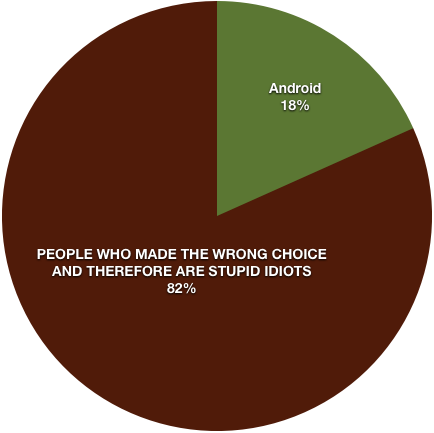The E-Reader, as we know it, isn't so doomed
Marco Arment on yesterday's post from The Loop:
Is it really clear and inevitable that e-ink is going to become colorful and video-capable? I’d argue that most of e-ink’s appeal today will still appeal to a lot of people five years from now, and probably even longer.
Newsprint can’t do much compared to color glossy magazine printing, but it has never gone away. Why must black-and-white e-ink readers inevitably be replaced by multimedia color tablets?
Newsprint is printed daily. Those marginal cost increases are massive when accumulated. The cost increase of a cheaper tablet over an E-Reader is likely to be far more stomachable to the masses as a single up front increase in purchase price for a device that they perceive can do everything a dedicated e-ink reader can do and more.
But e-ink readers have far lower hardware and power needs, so e-readers should maintain their advantages over tablets for quite some time: the best e-reader on the market today costs $79, weighs less than a third as much as an iPad 2, and has a battery that lasts a month. That’s a huge gap that won’t be filled with incremental hardware improvements.
It's certainly a huge gap, but once you pass a certain point is it one that matters to most people? If you can get to the point where people users only have to remember to charge their device overnight every few days, battery life is unlimited in practice. Whether an e-reader has a battery life of 1 month or 2 doesn't make any real difference to the majority of the gadget buying public. My guess is that the point of making a difference in practical usability would probably be somewhere around 2 to 3 days of not having to think about the battery.
Plus, the ideal size of an e-reader is probably going to remain smaller than the ideal size of a tablet. And there are other big advantages to reading on a basic e-ink reader, such as the lack of a bunch of apps and multimedia features to distract you from reading.
I don’t think the e-reader is “doomed” at all. It may just be relegated to a fringe device for reading nerds, but that’s what it’s been for most of its lifespan as a category and it’s been fine.
I'm certainly not arguing that tablets will be as good at reading as tablets. As I pointed out previously, I simply think they're going to die anyway.
Isn't being relegated to a fringe device essentially the same thing as being doomed? CRT monitors technically do provide specific advantages the masses would benefit from in some cases, but they're not enough to justify the purchase to most--and therefore not enough to justify production by most producers. There are still people who use CRT displays, however, because in their niche the advantages of responsiveness (and color accuracy? is that still a thing?) are important enough to base an entire purchase decision on.
The biggest players in the e-reader space are Amazon and Barnes & Noble. If they can make more money by churning out tablets in higher volume and don't need the distraction of making e-ink devices any more, will they bother? Sure, neither of them actually makes the devices themselves to make money--the point is to get consumers buying their digital content. Even if you don't care about the money made on the devices themselves, then, it's easy to note that the tablets enable purchasing of a wider swath of media for B&N and Amazon to make money on.
If Amazon and Barnes & Noble drop e-ink, the tech is effectively dead. The question becomes whether they'll think it's worth it to keep the lines of e-ink devices going solely for the people who want to have a device that just reads books well, rather than giving the companies the opportunity to sell rich media.
While I certainly hope they'd decide it is, I highly suspect it won't be.
